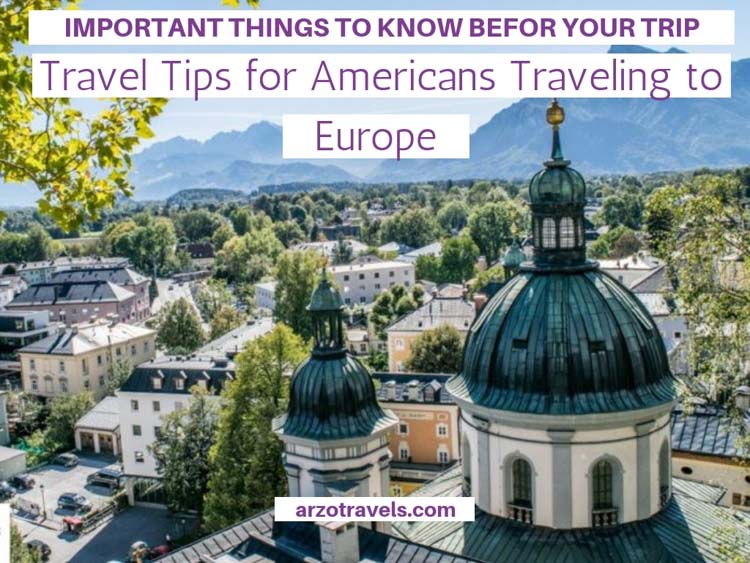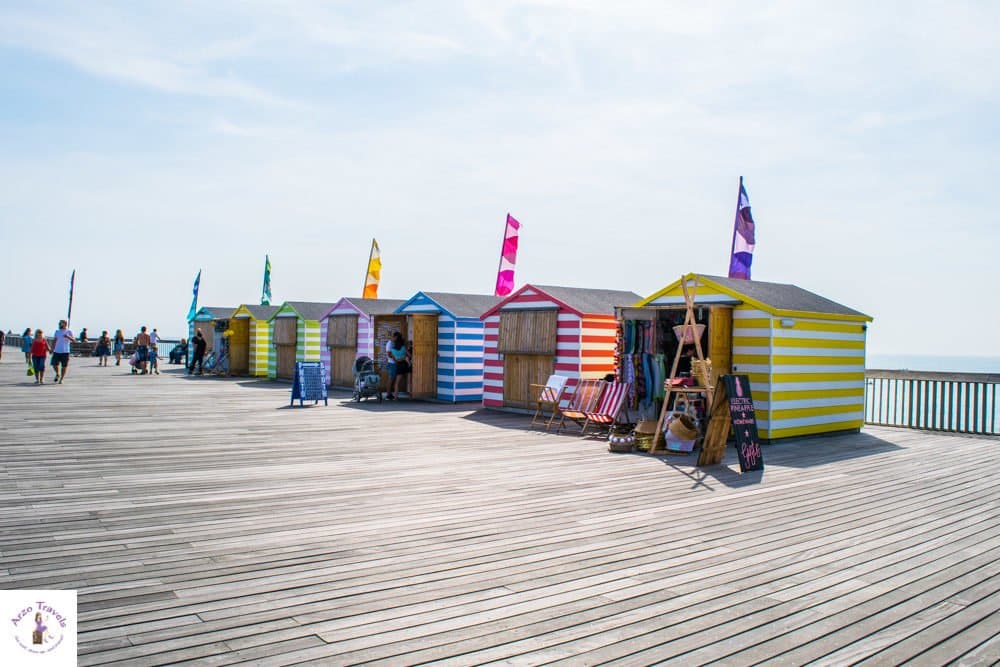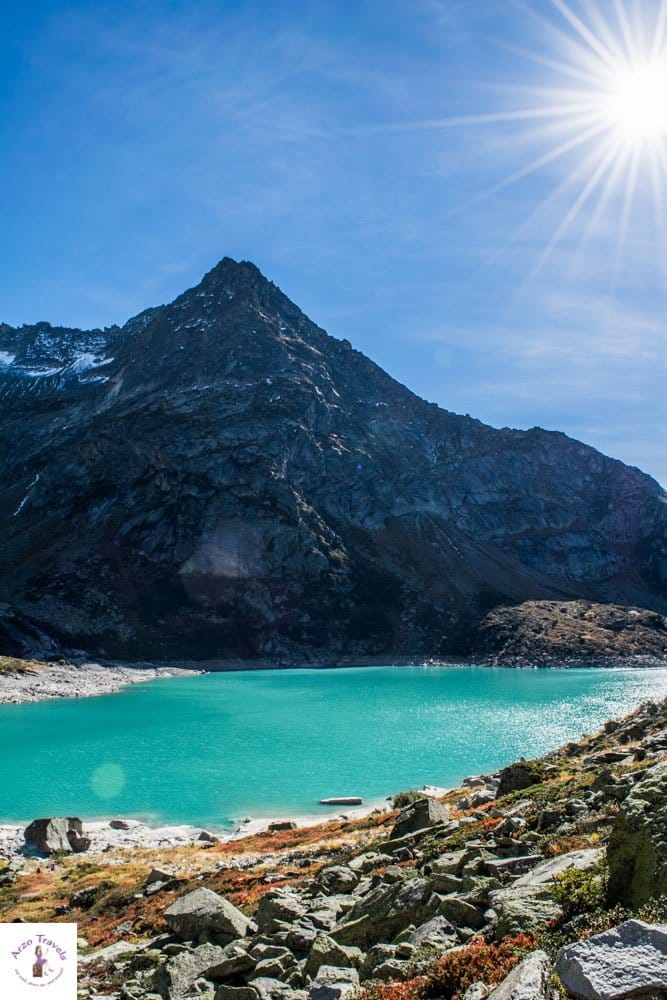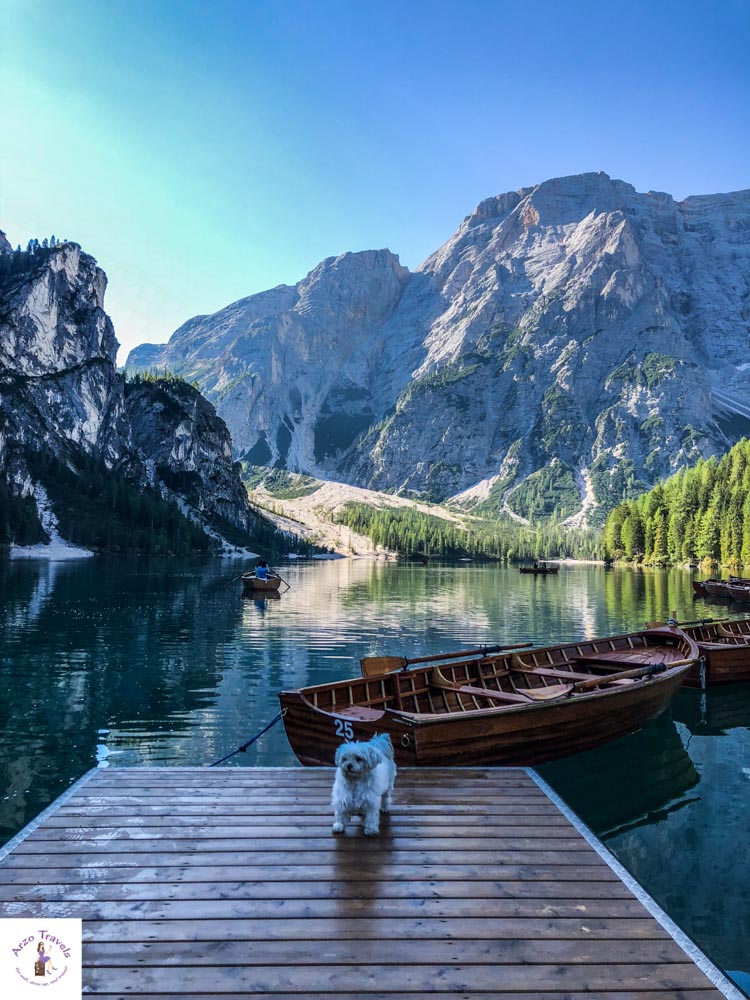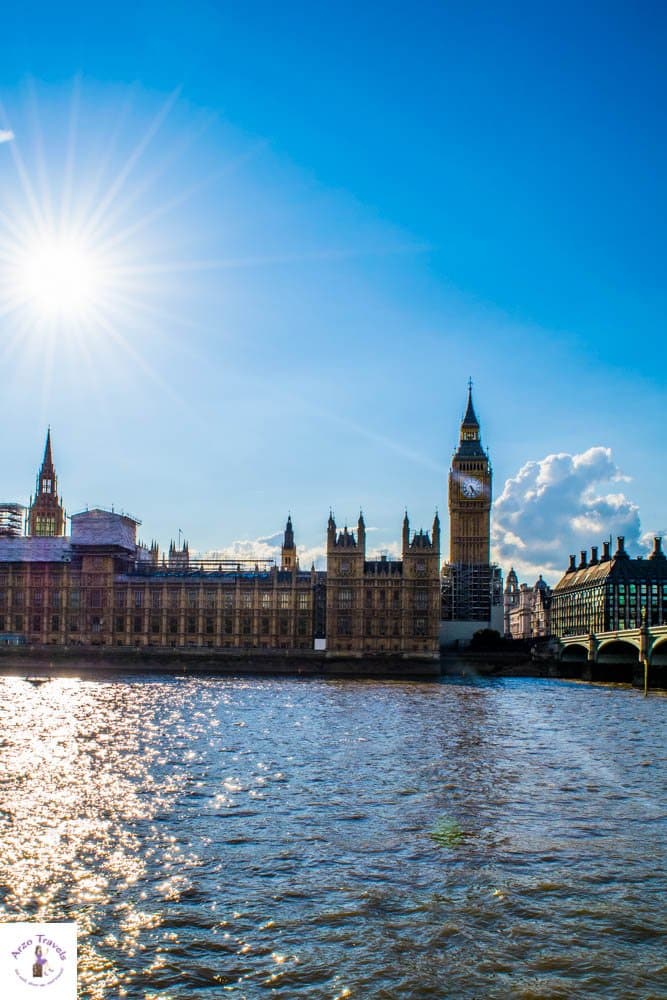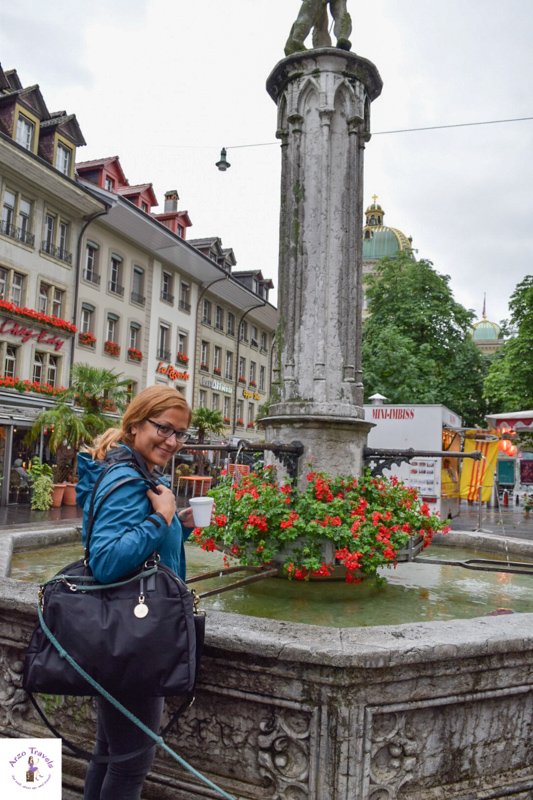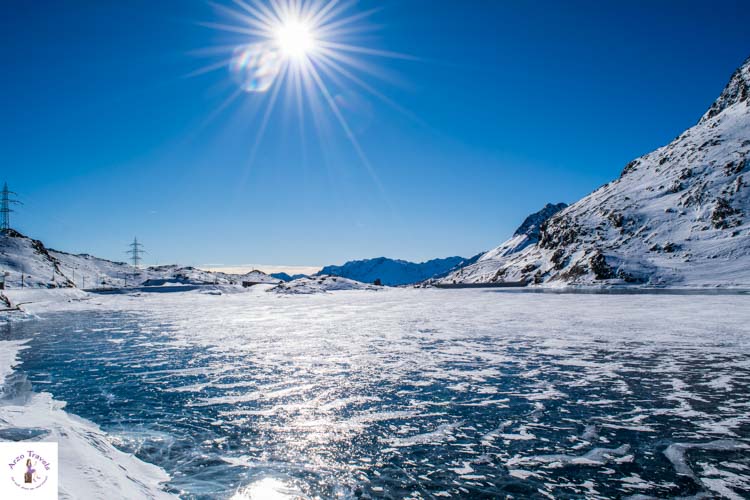Things to Know When Traveling to Europe
Are you planning a trip to Europe and planning to spend a wonderful vacation there? Then you might be wondering about Europe travel tips – if so, read on as you’ll find valuable information for your trip to Europe.
Europe is an amazing continent to visit – and I know that my American readers love traveling to Europe. Whether you guys read my Italy, Switzerland, France, or Germany posts – anything related to Europe seems extremely popular with readers in the US. And that makes sense. Europe is full of charming little towns, bustling cities, gorgeous lakes, mountains, castles, and so much history. Europe is the perfect place for Americans to visit.
As a German, things in Europe seem very natural to me – of course, I sometimes have to google certain travel tips for specific countries. Still, after traveling quite a bit in Europe, I have gained a fair knowledge of the different countries on the continent. But for Americans, the things that seem second nature to Europeans may seem odd, surprising, or even the complete opposite of what you are used to.
While not all the rules apply to all countries here are my top travel tips for Americans traveling to Europe. This list will help you navigate Europe like a pro and have a great time doing it.
First of all, do US-Americans (what is important to mention here is that the passport matters, not the residency) need a visa for Europe?
At the moment, in winter 2022, US-Americans do NOT need a visa for most countries and can travel within Europe for 90 as tourists without any problems. You can travel around the Schengen Area very hassle-free. After January 1, 2023, all U.S. citizens traveling to the 26 Schengen Zone countries will need to register with ETIAS or will risk being denied entry.
So, now, find out what to know and what to do as an American going to Europe…
THERE IS A LOT TO SEE IN EUROPE
First of all, don’t try to do all your Europe bucket list in one go. Europe is about the same size as the United States, but the countries are compactly situated like America’s states on the east coast. There is a lot to see and do, and trying to do too much in a short amount of time will mean being stressed.
I suggest breaking your trip up into sections of Europe or countries. Also, consider flying into one country and flying home from another so that you don’t have to circle back, and therefore, will see more.
DRINKING AGE MIGHT BE DIFFERENT
Unlike in America, the drinking age can vary from country to country. For example, in Spain, the legal drinking age is 16. In many other countries, like Germany is 18 for hard liquor and 16 for beer, wine, etc. Just something to be aware of, especially if you are traveling with teenagers.
SMOKING IS MORE COMMON IN EUROPE
Smoking is more common in Europe than many Americans realize. Usage varies with the country but increases the farther east you travel. If you have allergies or are sensitive to smoke, be conscious that you will encounter this more than you would in many metropolitan US cities (though maybe something similar to rural US areas).
I think, that smoking is more common in Eastern European countries than in Central Europe for example. When I travel to the Balkans, to countries like Montenegro or Bosnia-Herzegovina, I am always surprised by how much people smoke – indoors and outdoors. In countries like Germany, at least smoking is prohibited in public buildings as well as in many restaurants/bars, etc.
YOU MIGHT NEED AN ADAPTER
Another useful tip for Americans going to Europe is to bring an adapter. The voltage used in Europe is different, so an adapter is needed to plug in your electrical devices (different ones for different countries, so make sure you check before you leave).
SUNDAYS ARE A SPECIAL DAY
Americans are used to businesses being open 7 days a week, if not 24 hours a day. But that is not necessarily the case in Europe. In some countries, like Germany, stores are not open on Sundays at all. Restaurants, gas stations, and some newsagents are normally open but not so most supermarkets, hair dresser´s or other shops. So, be aware of the local hours if you plan to shop on the weekend. Holidays are also something to consider.
THERE ARE MANY LANGUAGES
Each country in Europe is unique, with its own culture and language. Even within the European Union (EU), there are many differences. Some may surprise you, like the German-speaking areas in Northern Italy.
Do a little research about the places you are going to, and you’ll be in the know about these little differences that make Europe so special.
PEOPLE SPEAK ENGLISH… IN SOME EUROPEAN COUNTRIES
In some countries, it is easier to get by in English than in others. You may have no problem in Stockholm if your Swedish is rudimentary, but they do not like speaking English in France in my experience (and from what I have heard from other travelers). Try to master a few polite phrases in the local dialect to make your visit smoother. Most locals will appreciate your effort. Having Google translate handy doesn’t hurt either.
EURO IS NOT THE ONLY CURRENCY
The Euro is not used in all countries in Europe (not even in all European Union countries), so you may need to exchange currency when crossing borders. Don’t worry, there are plenty of places to do this, but you will be charged a small fee for the convenience. However, there are also countries like Montenegro or Kosovo that have the Euro though they are not part of the EU.
SMOKING WEED IS…PROBABLY FORBIDDEN
Americans sometimes think of Europe as being more liberal, and while it may be true in some cases, not in the case of marijuana. Except in special coffee shops in Amsterdam and certain locations in Copenhagen, smoking pot is illegal almost everywhere. Be aware of the local laws if you plan to consume or smoke cannabis (or any drug) while traveling through Europe.
TIPPING IS COMMON…BUT NOT EVERYWHERE AND NOT A LOT
Tipping is a little different in Europe. Here, they tend more to 10% than the 15-20% Americans leave. Sometimes, service is automatically added to the bill, so no extra tip is needed in those cases. There are some countries where you don’t need to tip, though, like Switzerland but in general: if you are happy with the service – feel free to tip.
COMFORTABLE SHOES ARE ESSENTIAL
Bring comfortable walking shoes. The American culture is geared more toward driving, and you are used to paved sidewalks in most areas. But you’ll do a lot more walking in Europe, sometimes on cobblestone streets. Remember to pack a comfortable pair of sneakers for your sightseeing.
CREDIT CARDS ARE WIDELY ACCEPTED – THOUGH HAVE SOME CASH
There are countries like Iceland where you can basically pay by card for everything. Then there are countries, like Albania, where credit card payment is rarely accepted. So, since credit cards are not accepted in some places, always have some cash on you, just in case.
See if your bank offers good rates on international ATM withdrawals so that you can pull local currency wherever you are in Europe, without having to travel with a ton of cash or traveler’s checks (American Express is not accepted everywhere, but Visa and Mastercard are more common).
Don’t change money at the hotel or the airport/train station as the rates are most of the time not good for you.
INFORM YOUR CREDIT CARD COMPANY
Fraud alerts can be a real downer when you are on vacation. Please make sure you let your credit card company know you’re traveling so that your card isn’t flagged when it’s used in Europe. While not everyone accepts credit cards, it’s good to have one just in case. Staying on a budget as an American exploring Europe is no easy task.
PACK LIGHT…OR CARRY HEAVY
Some hotels, especially older ones (for instance, in Paris), don’t have elevators, so pack light enough that you can carry your luggage where you need to go. This also helps when using public transportation and trains. Besides, you are probably going to buy things along the way – plan ahead.
THERE IS A LOT OF FREE WIFI…BUT NOT ALWAYS
Check with your cell phone carrier about whether international usage is part of your plan to avoid unnecessarily high charges. WiFi is available in hotels (usually for free), often in the city centers, and in cafes and restaurants (but not always).
BEING DRUNK AND LOUD CAN BE EXPENSIVE
Americans are known for being loud, so try to match your enthusiasm and volume to the locals around you (Italians are loud, too, so it depends on where you are). But in general, just be aware when you’re out having lunch at a cafe or exploring a castle.
Amsterdam has begun fishing for drunkenness and excessive noise due to the number of tourists who come to enjoy the Dutch capital.
THE UK IS NOT PART OF THE EU ANYMORE
The UK is NOT part of the European Union (EU) any longer. Traveling from an EU country to the UK should be quite easy but might be more difficult than it used to be. When you are traveling between EU and non-EU countries, such as Germany and Switzerland, there may be border control, so be careful when buying a lot of stuff and then traveling between them.
HOTELS MIGHT WANT TO KEEP YOUR PASSPORTS
Hotels used to ask you to hold your passport, but this is actually not allowed in most countries… So, if you are asked to give it up, insist on them just making a copy and keep your passport with you. It rarely happens these days that they are still trying to keep it, but if it happens, you know your rights!
FREE WATER AND REFILLS? NOT EVERYWHERE
While free refills on soft drinks are pretty common all over the US, when you order in Europe, soda usually comes in a bottle. Water, too, unless you specify tap water (which is not provided for free in many countries – you have to pay in restaurants).
However, in many places, tap water is safe to drink (not everywhere, though). Sometimes, like in Austria, Northern Italy, or Switzerland, you even have water fountains providing you with fresh drinking water when you are outside. So, take a reusable water bottle and refill it for free.
Sparkling water is more popular in certain countries, like Germany. Often, you have to pay a small deposit if you buy water or soft drinks in bottles. And ice is not given unless asked for.
BRING A CLOTH BAG AND AVOID PLASTIC
Bring a reusable cloth bag for shopping. Plastic bags often cost money in Europe, and even if it is just a few cents, they will help the environment.
TO PEE IS NOT FREE (MAYBE)
Many public bathrooms require you to pay in certain countries, like Germany. So, always have some coins with you (mostly it is about 0,50-0,70€, but it really depends on the country – but don’t be surprised.
AIR CONDITIONING IS NOT AS COMMON
Also, air conditioning isn’t as common as in America, especially in Northern Europe, so this is something to be aware of if visiting in the summer.
HIGH SEASON MEANS CROWDS… AND CROWDS
If possible, avoid traveling during the peak season, as many European tourist hotspots are struggling to accommodate the crowds, like Venice. If you want to avoid the worst of it, try visiting from September or October and then from March to May for your summer vacations and winter vacations from January to February/March. Find out how Switzerland looks in winter by clicking here.
FOOD PORTIONS MIGHT BE SMALLER
Another difference between Europe and America is that restaurant portions are smaller. This can be a bit of a shock if you’re coming from the US and its ubiquitous super-sized meals. To-go boxes aren’t really used either, but you can always ask for your food to be packed if you have some leftovers.
EXTRA TIP FOR US-AMERICANS IN EUROPE
Do as the Romans do. When you’re in Europe, try to mesh with the local culture as much as you can. You’ll learn more, have more fun, and have a better experience than just playing the American tourist.
As you can see, there are many European travel tips for Americans that will smooth your way (and this isn’t even all of them!). But these important things to remember will make your European vacation tons more fun and a much more memorable experience. Just follow these do’s and don’ts in Europe and have a great time!
